Cooking oil is a staple ingredient in many recipes, but what do you do with it when you’re done? Disposing of cooking oil can be tricky if you don’t take the proper precautions. If You don’t know how to dispose of cooking oil, it can lead to environmental damage and health hazards.
This article will discuss how to dispose of cooking oil safely and responsibly. We will cover topics such as properly disposing of cooking oil, the dangers of improper disposal, and how to recycle the cooking oil.
By the end of this article, you will have the tools and knowledge to safely and responsibly dispose of your cooking oil.
Key Takeaways
- Key Takeaways
Table of Contents
About Cooking Oil
Cooking oil is a vital ingredient in the kitchen. It can be used to sauté, fry, and even bake, and it adds flavor and texture to many of our favorite dishes. But not all cooking oils are created equal, and some are better suited for specific tasks than others.
Used cooking oil can harm the environment if not disposed of properly, so it’s essential to handle them well.
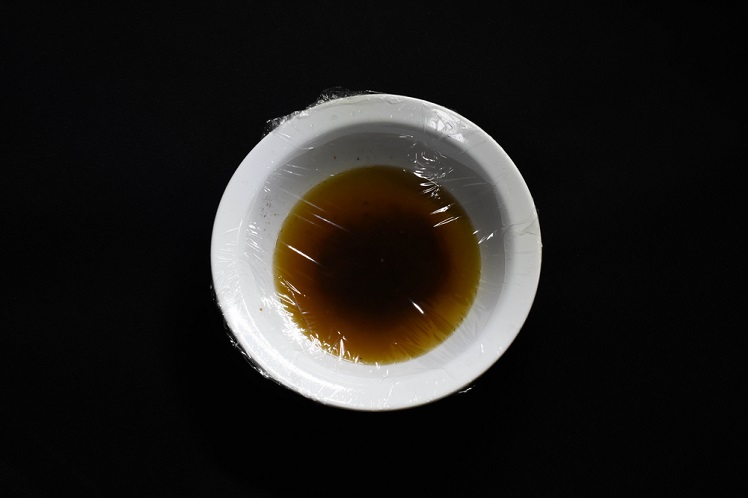
1. What Does Used Cooking Oil Contain?
Used cooking oil typically contains fatty acids, which are a type of lipid that is released when oil is heated up. The fatty acids in the oil are broken down when heated and can accumulate in the oil over time.
Moreover, used cooking oil could include water and food crumbs. This is why it is essential to dispose cooking oil not and adequately simply pour it down the drain, as it can cause blockages and other environmental issues.
2. Why You Should Not Dispose of Cooking Oils In Kitchen Sink?
Cooking oils should not be disposed of in kitchen sinks for several reasons. First, oil pouring down the kitchen sink can become stuck in the pipes, leading to clogs. Therefore, clogs can be difficult and expensive to remove. Second, pouring oil down the sink can cause damage to the wastewater treatment system.
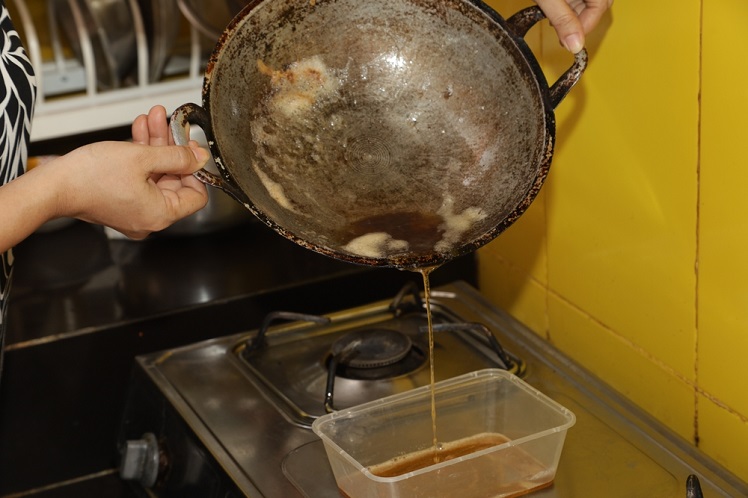
Moreover, oils and fats can sink to the bottom and disrupt the natural bacteria that break down waste in the septic system. Finally, disposing of oil down the sink can harm the environment.
The oil can end up in rivers and streams, harming aquatic life.
3. What Happens If You Pour Cooking Oil Down The Toilet?
Pouring cooking oil down the toilet can cause plumbing and sewer systems clogs. This is because when oil is poured down the drain, it cools off and solidifies, which can create blockages in the pipes.
Additionally, cooking oil can coat the pipes’ inner walls, causing further clogging issues.
Moreover, cooking oil can block municipal sewer pipes and result in costly damage that can cost thousands of dollars to repair if it gets into the sewer. Therefore, cooking oil should not dissolve in water since it will cause clogs in the pipes.
4. Is Cooking Oil Recyclable?
Not all cooking oil is recyclable. Cooking oil can be reused and recycled sometimes, but it is not typically recycled because the oily residue can contaminate other recyclable materials and create hazardous waste.
Additionally, cooking oil can clog pipes and drains and be difficult to remove without harsh chemicals.
Therefore, we recommend storing it properly and then disposing of it and other household waste. Or, you can take used oil to restaurants for correct waste disposal. Moreover, contacting waste collection centers is also a responsible way to dispose of cooking oil.
How Can You Tell If Cooking Oil is Bad?
One way to tell if cooking oil is terrible is to smell it. If it has a strong, unpleasant smell, it is likely expired cooking oil and should be discarded. Additionally, you can take a small amount of the oil and heat it up in a skillet.
If it starts to smoke or gives off an unpleasant odor, it is expired cooking oil that should be discarded.
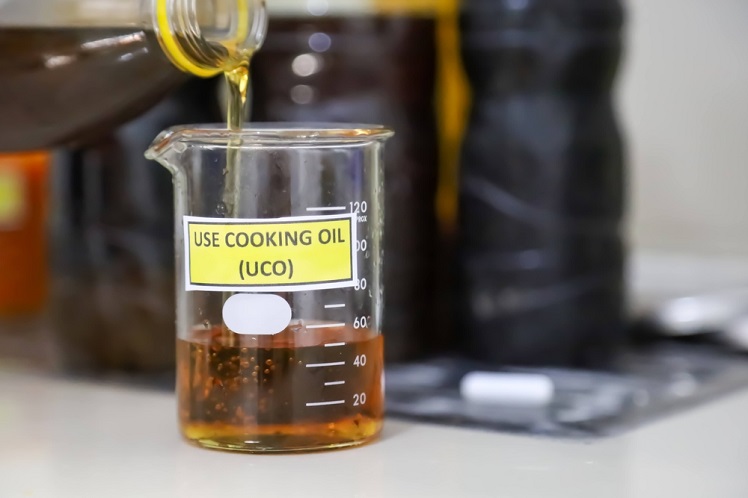
The expired cooking oil smells bad because, over time, old cooking oils can become rancid due to oxidation or reacting with light or heat. Rancid oil has an unpleasant smell and taste and can also be unhealthy.
Cooking Oil Environmental Problems
Cooking oil has become a staple in many households, but its environmental impact is increasingly worrisome. Here are some cooking oil environmental problems to give you a better understanding.
1. Soil and Water Contamination
The waste disposal of used cooking oil poses a significant environmental risk. It can seep into the ground and contaminate groundwater, leading to water pollution. A
2. Pipe Clogging
Improper garbage disposal of cooking oil can clog sewage systems. This blockage can prevent wastewater from flowing correctly and cause water to back up in the pipes, leading to flooding and other plumbing problems.
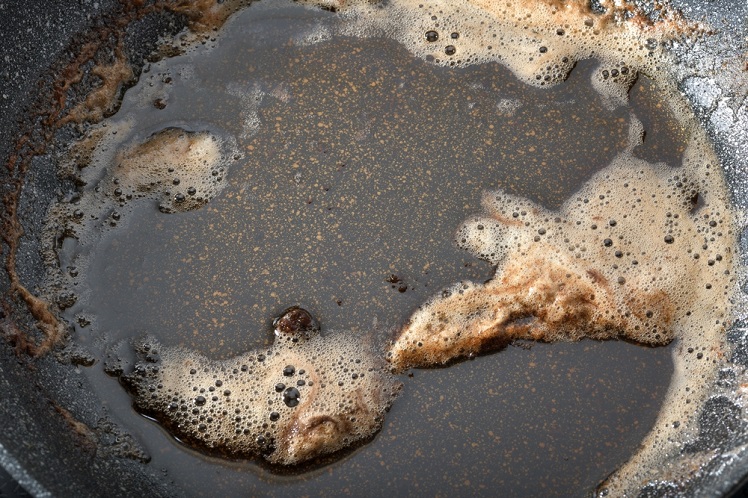
3. Threaten Wildlife
When disposed of incorrectly, cooking oil can harm wildlife, as it can coat and suffocate animals. Oil in water can form an impermeable layer on its surface, preventing oxygen from getting to the organisms living beneath it and suffocating them. Fat can also contaminate wildlife’s food sources, making them inedible or toxic.
As more and more people become aware of the environmental problems associated with cooking oil disposal, it is essential to explore ways to get rid of the oil responsibly and reduce its environmental impact.
How to Dispose of Cooking Oil?
Cooking oil is essential for many recipes, but disposing of it can be a challenge. If not disposed of properly, cooking oil can be hazardous to the environment and cause plumbing problems.
Fortunately, there are several methods for safely disposing of cooking oil. Let’s check this out!
1. Method for Disposing Cooking Oil
Improper garbage disposal of cooking oil can be hazardous to the environment and lead to clogged drains and sewers. The following points will discuss various methods for disposing of cooking oil safely and responsibly.
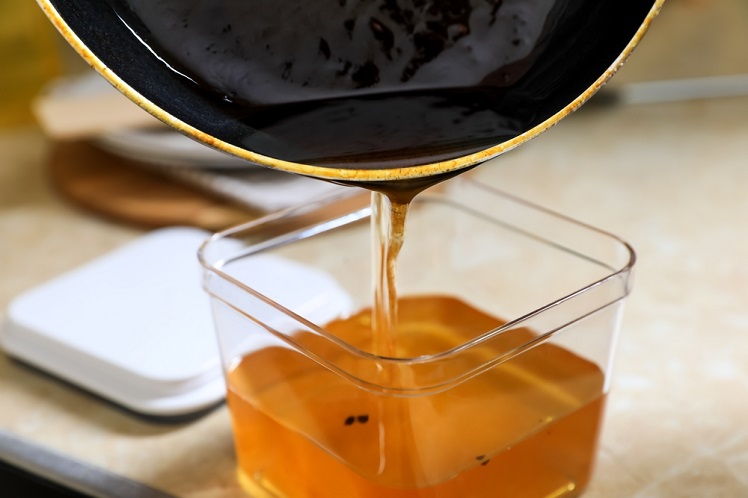
Store and Toss
Cooking oil can be disposed of typically and effectively by being contained and then thrown out with regular trash. After frying, let the oil cool, then store it in a disposable container with a tight lid.
Since solid oil won’t seep through biodegradable containers like liquid cooking oil, you may freeze them.
Reuse The Oil
You can clean, store, and use oil that has only been used once in cooking. The oil that has cooled should be cleaned by filtering it. This prolongs the time before the oil is disposed of using disposable containers.
Contact Hazardous Disposal and Recycle Center
Since waste collection centers for home hazardous waste frequently also collect other categories, such as medical waste, this is a multi-beneficial alternative. You can get rid of the oil and dangerous waste at once if they offer a doorstep pick-up service.
Add To Compost
Well, if you’re using only vegetable oil for cooking, it’s just being taken out of food like soy or corn. Since these foods are all-natural, adding them to your usual compost pile is okay.
The only exception would be if you cooked with meat or used animal fat, as these actions can draw pests and other tiny animals.
Mix with Absorbent Waste Materials
The excess oil after cooking can actually be “converted” into solid waste by blending it with other absorbent waste materials such as sand and flour for safe disposal. Once that is appropriately stored, you can add it to your regular household garbage disposal routine.
2. The Best Way to Dispose of Cooking Oil Environmentally After Frying
Recycling used cooking oil is the best way to dispose of this waste while being mindful of the environment. Recycling used cooking oil is a simple process that requires you to pour the used oil into a sealed container.
Once the container is complete, it can be taken to a local recycling center, where the oil is filtered, treated, and turned into biodiesel. Biodiesel is a renewable fuel source that can be used for cars, trucks, and other machinery.
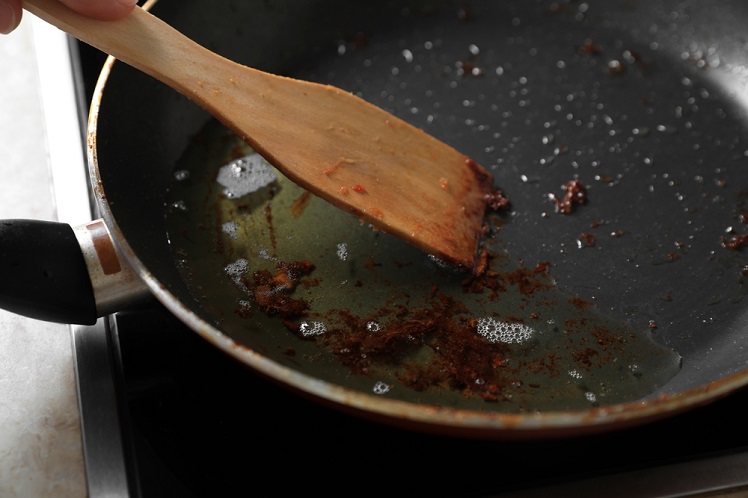
If recycling used cooking oil is not an option, cooking oil can be disposed of in the trash. Make sure to let the oil cool before pouring it into a sealable container and disposing of it. Do not pour oil down the drain, leading to clogged pipes and contaminating local water sources.
Another option for disposing of old cooking oil is to compost it. This is a great way to reduce waste and beneficially reuse the oil. To do this, simply mix the oil with an absorbent material like sawdust or kitty.
You might also like:
- Eco-Tips: How to Dispose of Old Perfume Safely and Responsibly?
- Eco Tips: How to Dispose of Charcoal Ashes Harmlessly for Environment?
- Eco Tips: How to Dispose Bacon Grease Correctly?
- Eco Tips: How to Dispose of Paint Thinner Safely and Responsibly?
- Eco Tips: How to Dispose of Batteries Properly?
What Can You Do with Used Cooking Oil?
Many people are now looking for ways to responsibly dispose of their used cooking oil and make the most out of it. This article will discuss the various ways you can use your disposable cooking oil, from recycling it for other purposes to creating an alternative fuel source.
You can make a big difference in preserving our planet’s resources with a little effort.
1. Make Biodiesel
Used cooking oil can generate electricity through a process called biodiesel production.
To make biodiesel, you should combine the oil with a base, such as methanol, and a catalyst, such as sodium hydroxide. The resulting biodiesel can power cars, generators, and other machinery.
2. Create Soap
Used cooking oil can be used to make homemade soap. This process involves combining the oil with lye and other ingredients, such as fragrances and colorants, to create a soap bar.
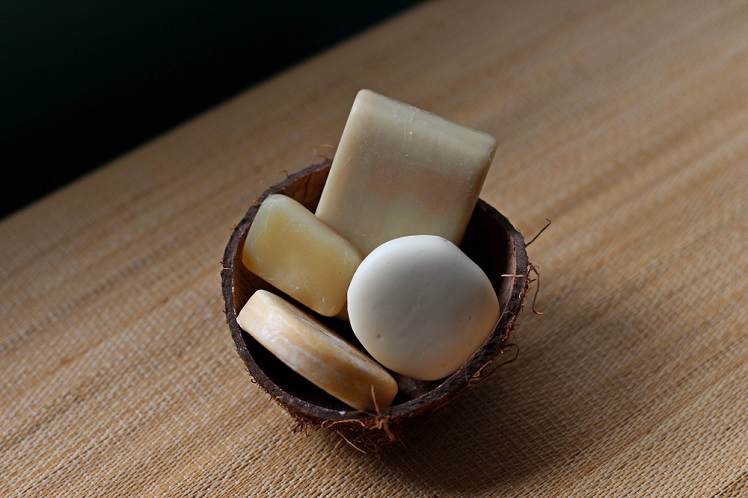
3. Fry Foods
Yes, you can recycle used cooking oil in some cases. One-time used oil can be recycled and reused for frying. To do this, strain the excess oil after cooking to remove any food particles, and then heat it to the desired temperature before adding food.
4. Make DIY Candles
Used cooking oil can also be used to make candles. You can simply melt the fat and add a wick to the mixture before pouring it into a container. Remember to add essential oil or fragrance to give a pleasant aroma.
How Do You Make Money with Used Cooking Oil?
As the world shifts to renewable energy sources, used cooking oil has become an increasingly popular option for making money. It can be used to create biodiesel, a cleaner-burning alternative to traditional diesel fuel.
Biodiesel can be used in many diesel engines, including those found in cars, trucks, boats, and other vehicles. It is also used in industrial applications, such as heating and power generation.
To make money with used cooking oil, you will need to collect it from restaurants, commercial kitchens, and other places where it is used. Before containing used cooking oil, ensure you understand your area’s local regulations and laws. For instance, you may need a license or permit to collect and transport the oil.
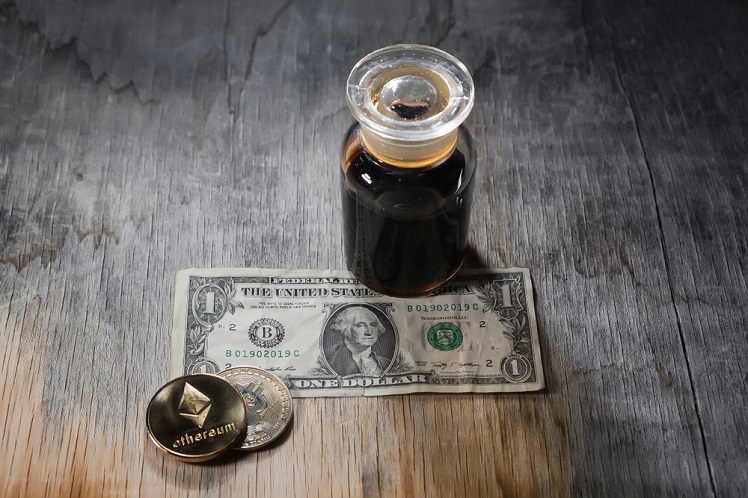
Later, you can then sell it to biodiesel production companies, which will turn it into biodiesel. The price of used cooking oil varies depending on the type of oil and its condition, but it usually ranges from $0.30 to $0.50 per gallon.
Cooking Oil Environment Alternatives
Cooking oil is an essential ingredient in countless recipes, but it can also cause harm to the environment when it’s not disposed of properly. With the rise of sustainable living, more and more people are looking for ways to reduce their environmental impact by finding cooking oil environmentally friendly alternatives.
In the following points, let us explore some of the most popular cooking oil ecologically friendly products.
1. Organic Olive Oil
Most kitchens always have olive oil on hand, especially if you roast vegetables frequently. Anyhow, if you get organic, olive oil is fantastic in terms of sustainability.
Organic olive oil is also good for the health of the soil, as it contains natural nutrients that help build the soil’s fertility. It is grown in ways that protect the environment and promote water conservation.
2. Vegetable Oil
Vegetable oil combines soybean, corn, canola, soy, peanut, olive, sesame, safflower, sunflower, cottonseed, and palm oils. Sustained Kitchen asserts that it makes a perfect vessel for frying, and for whatever reason.
Since it is composed of 100% food, vegetable oil is safe to compost or dispose of in the soil.
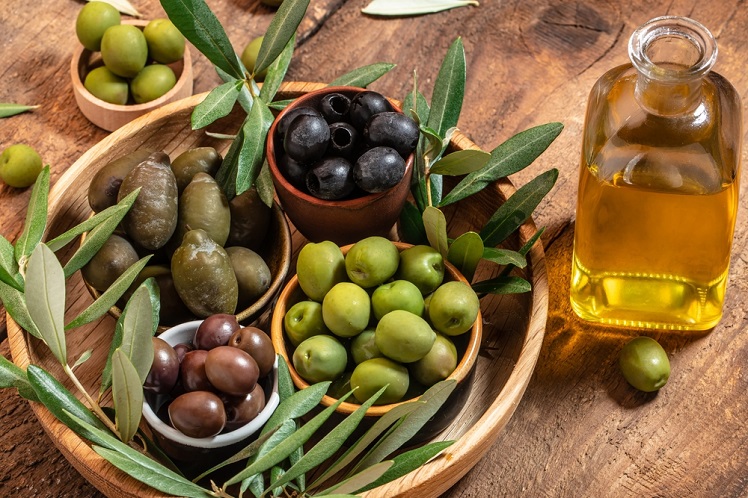
3. Rapeseed Oil
Canola oil is a contentious cooking oil that Small Footprint Family decries for being genetically modified, herbicide-resistant, and a magnet for harmful residue because it needs the poisonous chemical to be processed.
Others, citing Harvard’s Dr. Guy Crosby, says it is acceptable to get cold-pressed or organic canola oil products.
Final Thought
When disposing of cooking oil, it is essential to remember to never pour it down the drain, as this can cause clogging of pipes and damage the environment. Instead, place the oil in a sealed container and take it to a recycling center or hazardous waste facility.
Additionally, some cities offer programs that collect used cooking oil for reuse. Following our informative tips can help protect the environment and keep your home’s plumbing system functioning properly.
You might also like:
- Bioplastic Pros and Cons: An Unbiased Examination
- Eco-Friendly Bottling: Aluminum as the Sustainable Hero?
- How to Make Bioplastic from Rice: A Step-by-Step Guide
- Eco-Tips: How to Recycle Amazon Envelopes?
- What Does Compostable Mean?
FAQ (Frequently Asked Questions)
Can you pour oil down the toilet?
No, you should never pour oil down the toilet as it can damage the plumbing and cause clogs. This can lead to expensive repairs and drainage problems. For more tips on how to dispose of cooking oil correctly, please refer to the article above.
Can you put cooking oil down the drain?
No, you should not put cooking oil down the drain. The oil can solidify and clog the drain, which can cause plumbing problems. The solidified cooking oil can also contaminate nearby water sources if it gets into the water supply.
If you don’t know how to dispose of cooking oil, please read the article above.
Does cooking oil damage pipes?
Cooking oil can damage pipes if it solidifies and accumulates inside the tube, blocking the flow of water. The solidified cooking oil can cause clogs and other plumbing issues. It is best to avoid pouring cooking oil down the drain.
If you are looking for more methods on how to dispose of cooking oil, you can check the article above.
Can you put cooking oil in general waste?
No, you should not put cooking oil in general waste. Cooking oil is a hazardous material that can cause pollution when disposed of improperly. It should be disposed of in a particular container or unsafe waste bin.
Is used cooking oil good for the garden?
Used cooking oil harms the garden by clogging soil pores and suffocating plants. It can also attract pests and cause soil contamination. Therefore, in the article above, you should learn how to dispose of cooking oil the right way.
